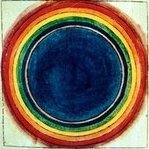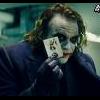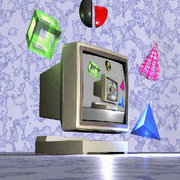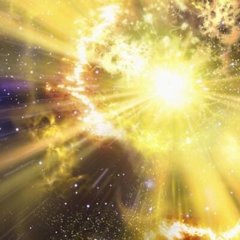-
Content count
1,988 -
Joined
-
Last visited
-
Days Won
46
About stirling
-
Rank
Soto Zen Teacher, Shunryu Suzuki Lineage
Profile Information
-
Gender
Sunyata
Recent Profile Visitors
10,865 profile views
-

A high percentage of our storytelling culture is biblically inspired
stirling replied to Sanity Check's topic in Abrahamic Religions Discussion
It comes from WAY before that. Read Joseph Campbell, "The Power of Myth", and "The Hero with a Thousand Faces". You can watch some of his discourses here: https://www.youtube.com/@JosephCampbellFoundation This might be pertinent: -
I forget if you answered this question, but are you working with a doctor/psychiatrist/counselor on this issue?
-
Welcome to the board, Joseph! What are some of your more specific interests?
-
This is what the world has been waiting for.
-
The cycle of desire is the tension of attachment, and then release of that tension if desire is requited. Release might bring short term excitement or pleasure , but that release is short-lived - the mind is soon grasping after the next desire. This is the nature of suffering. Real joy comes from equanimity, the feeling of things being OK as they are with no attachment to them being different. The deeper your insight, the more you are just joyful regardless of what is happening. Desire is greatly attenuated, and every-day equanimity becomes the norm. Increased equanimity naturally comes from meditation practices where there is resting the mind in emptiness regularly - I'd suggest at least 20 minutes a day.
-
Practice suggestion: Turn one-pointedness inside out: Take a moment and stare at the back of your hand. Take in it's details - notice it's skin texture, color, the dark patches, or views or musculature that lie underneath. Now, ask yourself - did you have any real consciousness of the room you were in, or any environmental factors happening outside of your hand when you were concentrating on it? Was your view narrowly focused, only having room for the small, tight reality of your hand? Was the area around, or behind, your hand in sharp focus and full of detail, or is it difficult to really remember anything about it? Next, take your arms and put them straight out to either side so the hands are out of view. Turn your hands forward so you fingers are facing forward and wiggle them, slowly moving them until you can JUST see their movement in your peripheral vision, but now further. Continue wiggling them for a moment and take in the completeness of the room. Slowly drop your hands to your sides, but hold on to the panoramic but diffuse view of the room and it's contents. Hold that view for a few seconds. Were you aware of any individual objects, or was it just a panorama of color and light? Did any of the objects have a separateness from the background, or were the homogenous? Can you clearly remember the colors and shapes of the room as you saw it? Was it surprising to see how widely your eyesight could be? This panoramic view technique isn't commonly spoken of, but is common in the teachings of Tibetan teachers, and many Zen teachers. The act of "holding the room" in your gaze keeps the mind quiet. Rather than taking in any single point in concentration, one takes in the whole dharmakaya. One can see the unlabeled emptiness of the objects in the room, and see emptiness in action, though it helps to have this aspect pointed out. The point? Practicing like this is resting in enlightened mind. The unlabeled stillness, lack of objects, etc. is how enlightened mind sees reality, and naturally becomes the primary way of experiencing.
-
OK... so I think I want to see a "Dao According to Nungali" thread!
-
Karma belongs to you. Karma is the story you tell about yourself in the moment you occupy. It feels like the accumulation of your life (or lives) history. When something touches your karma you'll know, as it usually triggers a thought like, "I knew they wouldn't like me", or, "this always happens to me". Take out a piece of paper and start with the writing prompt, "I'm the kind of person who...". Your answers, positive or negative, are your karma. You might find that many will fit nicely into one of these slots: https://en.wikipedia.org/wiki/List_of_maladaptive_schemas There it is! Karma! It isn't mysterious, it is very familiar and intimate. Each of these stories you tell is a delusion that causes, or is caused by your attachment or aversion. Ask yourself each time you encounter something that stops you, makes you upset, causes you to feel incomplete: "What am I attached to or averse to? What do you I feel HAS to happen, or simply CANNOT happen. That is where you are stuck... what this moment of dharma is for. What is the story you tell about this situation that isn't true? Why do you tell it? Only you will know, though counseling can help. - Dharma is teaching. Your experience of the world is literally ALL teaching. The fabric of reality is constantly pointing out where you are stuck. Read the news and see. Try to assemble furniture from Ikea and see. Are you in a relationship? See! When you notice that your karma (story) sticks to something - a situation or a thought - pay attention. This is a moment when you could actually dissolve this karma/dharma interaction and end the suffering it causes. For homework that is non-denominational and easy to put into action: https://untetheredsoul.com/untethered-soul Make sure you FINISH IT and actually TRY what it suggests. Unfortunately there are thousands upon thousands of copies of this very thin but dharma-dense book available used, with un-cracked spines. I recommend it to all of my new students before you get into Buddhism proper.
-

Loss of Emotion and Sensation - Major Blockage - Greatly Need Help
stirling replied to Listener's topic in General Discussion
After a year, it seems like your problems are ongoing, and none of the suggestions here are likely to work. I'm going to lock this thread and just suggest that you lean on proven, practical Western medicine for your issues, first and foremost. Go to a general practitioner and seek a counselor to talk about these issues and they might be able to help diagnose your issues and get you back on track. Thanks to all of the concerned Bums who have chimed in. _/\_ - Stirling (Mod) -
One-pointedness is an ingredient and precursor - the laser-like focus - while samadhi is the larger practice and state of that intense focus creating space for insight and tranquility. You can break all of these things into many constituent parts, but I honestly don't find it very helpful. I think most people can use very simple instruction to come to satisfactory results, unless they are working on the jhana "project" or something. Some of my Zen colleagues just tell people to sit and watch their mind, and some actually manage to find samadhi from those instructions! I like to give a little more instruction than that... _/\_
-
It isn't mysterious: Put your attention on an object (pick an object, ANY object - your breath (or someone elses!), a crack in the floor, the ringing in your ears). The mind goes quiet, and attention only rests on the single object. You now have access concentration. The mind is still and concentrated. Congratulations! Most students can do this within a few weeks of practice or sooner, with guidance.
-

Buddhist/Daoist Views Related to Xing/Dharmakaya(Split From What do you think about Neidan(內丹)?)
stirling replied to SodaChanh's topic in Daoist Discussion
A brief experience of it, or a permanent experience? Just trying to clarify. Honestly, the terminology is a baffling. What does: Sounds like a glimpse? I'm trying to understand what you are getting at. Is it a KIND of awakening? A glimpse? What is awakened to? I'm not sure what the terminology is intended to point to. Not sure if this is similar - in Zen there are kensho and satori: https://en.wikipedia.org/wiki/Kenshō Perhaps this bit is helpful: Here, jian would be "kensho" the glimpse of enlightenment, and xing would be the complete realization, "satori". After "satori", the realization gradually deepens until the "suchness" is a full time experience. Is this helpful? -

Buddhist/Daoist Views Related to Xing/Dharmakaya(Split From What do you think about Neidan(內丹)?)
stirling replied to SodaChanh's topic in Daoist Discussion
I was taught Tonglen, which is also a visualization exercise, for the same purpose. I would agree with the teacher - whether you think you are literally manipulating things isn't that important. My experience is that such things can be much simpler. What is "Ming" and how does one lose it in this scenario? Huh. I have occasionally donated to teachers, but never paid for teachings directly. It's only my opinion, but everything one could need to know to become enlightened is available for free, including the teachers that might lead one there. -

Buddhist/Daoist Views Related to Xing/Dharmakaya(Split From What do you think about Neidan(內丹)?)
stirling replied to SodaChanh's topic in Daoist Discussion
I wonder if we could agree on a definition of Xing? So, this is just a starting place, but what do you think of this article that contrasts the very views we are talking about? I have highlighted some points I find interesting... you probably have your own. From: https://www.sanctuaryoftao.org/blog/xing-and-ming Some questions about the paragraphs above, if you feel you'd like to answer: What does "awakened" mean here: Awakened to what? Is that awakening persistent? I suppose I may have accidentally developed Ming, but resting the mind in clarity and tranquility are effortless for me at this point. I agree that both of these aspects are important, and they are mentioned as important in mind training, but the tranquility isn't arrived at by any physical/dietary/body practice I am aware of, except perhaps working with the breath? Would you agree with this? Is "Entering the Void" the final stage of development, then, or? - I'm not sure what you mean here, honestly. You mean can I teleport to other locations in a something like a spirit body? Do you mean: https://en.wikipedia.org/wiki/Yangsheng_(Daoism) From my perspective this body as a truly separate thing is a delusion. Regardless of what I do, it is impermanent like all things. What IS immortal is the awareness (which I would now identify as) that is omnipresent and exists outside of time and space. -

Buddhist/Daoist Views Related to Xing/Dharmakaya(Split From What do you think about Neidan(內丹)?)
stirling replied to SodaChanh's topic in Daoist Discussion
Not one sided - I simply take issue with the idea that there any one tradition has some monopoly on realzation, what is realized, and how to do it, my friend. I have a couple of friends that I have met along the way who did NONE of these practices and had complete realization. One is actually a stoic! In my opinion practices don't precipitate realization, but they DO make us more prone to realization ( (possibly not ALL of them). The practice isn't the cause, however, in my experience the cause is the realization itself - a misconception clarified. Are practices valuable? Certainly anyone who has ever taken up meditation for at least 20 minutes most days will see within a month that they are calmer, less reactive, kinder, etc. I'm not against practice, at all, but the discussion is about realization.














